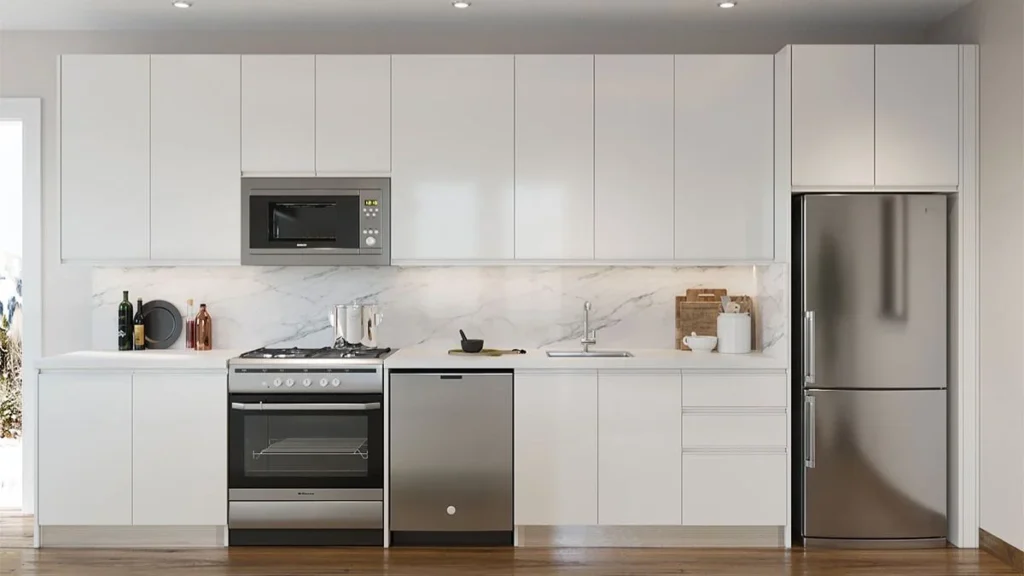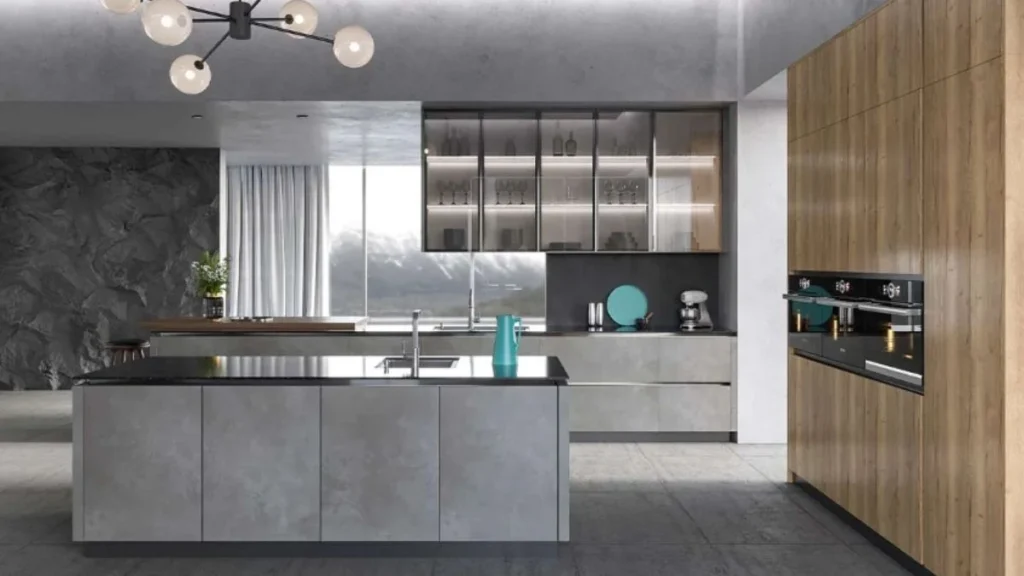HOME IMPROVEMENT
How Each of these 8 Factors Affects Your Small Kitchen Renovation Cost

Are you planning a small kitchen renovation but unsure how much it will cost? You’re not alone.
Many homeowners face the same dilemma, not knowing which factors affect their renovation budget. Whether you’re upgrading cabinets, installing new appliances, or changing the layout, these decisions can quickly add up.
In this article, we’ll break down the key factors that influence small kitchen renovation cost, helping you make informed choices and avoid surprises in your budget. Let’s dive in!
Table of Contents
1. Size of the Kitchen

The size of your kitchen will directly affect the overall cost of renovation. A larger kitchen requires more materials, which increases the cost. Smaller kitchens may require fewer resources but could still cost more per square footage due to custom work or complicated designs.
A small kitchen might seem less expensive at first, but it can still be costly. If the space needs structural changes, the cost could rise. The layout or shape of the kitchen can also affect how much work is needed.
Even in a small kitchen, costs can fluctuate depending on the scope of the renovation. If you’re replacing cabinets or appliances, the total cost may increase. The layout, type of work, and materials used will impact the final price.
2. Design and Layout

The design and layout of your kitchen are important factors in the Small Kitchen Renovation Cost. If you plan to change the layout, it may involve moving walls or plumbing, which can add to the cost. Keeping the existing design can lower the price by avoiding the need for major changes.
Complicated layouts with custom features, like islands or built-in storage, tend to be more expensive. These require specialized materials and more labor. A simpler, more straightforward design will reduce costs because it requires less work and fewer materials.
A major layout change can affect not just the price but also the timeline. The more changes you make to the structure, the longer the renovation will take. This can lead to higher labor costs and extended project timelines.
3. Materials Used
The type of materials chosen for your renovation will have a large impact on the final price. High-quality materials like granite or marble tend to be more expensive than laminate or tile. The cost difference can be significant, depending on the size of your kitchen.
Choosing more affordable materials can reduce the Small Kitchen Renovation Cost. Laminate countertops and basic ceramic tiles are less expensive and still functional. Selecting mid-range materials can give you a good balance between quality and price.
However, the materials you choose are not just about price. The durability and long-term maintenance of materials can affect their value over time. Some materials may have lower initial costs but require more upkeep or replacement, which adds to future expenses.
4. Labor Costs
Labor make up a significant portion of any Small Kitchen Renovation Cost. Skilled tradespeople, like plumbers, electricians, and carpenters, typically charge higher rates for their services. The complexity of the renovation will determine how much labor is required.
If the renovation involves structural changes, specialized labor will be needed. These extra services can increase the Small Kitchen Renovation Cost. Hiring the best kitchen contractors can help ensure the work is done correctly and efficiently, which may save costs in the long run. Doing some work yourself can reduce labor costs, but it may take longer.
5. Appliances
Upgrading appliances is a key aspect of many kitchen renovations. High-end or energy-efficient appliances tend to cost more upfront. However, they may save money in the long run by lowering utility bills or lasting longer.
Basic appliances can be a good option if you want to save money. These are often more affordable but may not offer the same features or longevity. They can still meet your kitchen’s needs without significantly increasing the renovation cost.
It’s important to factor in the cost of both installation and removal of old appliances. Some appliances may require additional work to install, such as wiring or plumbing. These extra steps can add to the overall renovation cost.
6. Permits
In many cases, permits are required to perform certain types of work in a kitchen. If you’re moving plumbing or electrical lines, local authorities may need to approve the changes. The cost of permits can vary, but they are necessary for legal and safety reasons.
Failure to obtain the proper permits could result in fines or the need to redo the work. The cost of permits might seem small compared to the overall budget but it should still be considered. Always check local building codes before starting a project to ensure compliance.
7. Cabinetry and Storage
Cabinetry and storage are important components of any kitchen renovation. Custom cabinetry is often more expensive but offers more flexibility in design and storage. Stock cabinets are less costly but may not meet specific design needs.
Adding built-in storage solutions, such as pull-out shelves or corner units, can also increase costs. Custom options tend to require more time and craftsmanship. Standard pre-fabricated cabinets are often quicker to install and can help reduce overall expenses.
8. Finishes and Fixtures
The finishes and fixtures in your kitchen renovation can affect your total cost. Upgrading items like faucets, light fixtures, and cabinet hardware may seem small but it can add up. High-end fixtures, such as designer faucets, will increase the overall cost.
Lighting is another important element to consider when renovating. Pendant lights, under-cabinet lighting, and other specialty fixtures can be expensive. Choosing more affordable or standard options will help you stay within your budget.
Discover How Smart Choices Lower Your Small Kitchen Renovation Cost
A small kitchen renovation cost can vary greatly depending on several factors. It’s important to plan carefully and make decisions based on your budget and needs. Keeping track of each factor will help ensure your renovation is both affordable and successful.
By understanding how design, materials, and labor affect costs, you can make better choices. A well-thought-out plan can lead to a kitchen you love without overspending.
Did you learn something new from this article? If so, be sure to check out our blog for more educational content.
-

 GENERAL6 months ago
GENERAL6 months agoChristofle – For Those Who Dream of Family Heirloom Silver
-

 SPORTS8 months ago
SPORTS8 months agoDiscover the World of Football with Streameast: Watch Your Favorite Leagues and Tournaments
-

 GENERAL4 months ago
GENERAL4 months agoUncovering the World of кинокрадко: The Dark Side of Film Piracy
-

 GENERAL2 months ago
GENERAL2 months agoATFBooru: Anime, Gaming, and Subculture Imageboard























